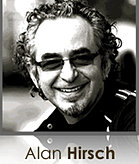My denomination has a code of ethics. That code of ethics says this: that when pastors leave their churches, they must "sever professional ties" with their congregations. This means a lot of things, and is intentionally both harsh and vague. It is vague because if a person were to get overly specific, it would both be too burdensome of a policy and would not universally apply. It is harsh enough however to paint a clear picture--the former pastor must vigilantly self-police in order to make sure she or he does not interfere with the ministry of the current pastor. In order to do this, the exiting must erect boundaries, turn away from certain conversations, and seek to empower the incoming pastor to actually be their church's pastor.
Most other denominations have similar ethics, whether stated or unstated. This really is also for the benefit of the former pastor as well. One of the best part of being a former pastor for me is being removed from the drama of the church I left. Much of the time, it is part of the reason I left.
Each church I have served has had a person around it that struggled with these boundaries, in one way or another. In Kansas City, it was not as much of an issue because the former youth pastor was a supporter and became a really good friend. He did however serve on the youth team. He and the church knew the importance of supporting the youth pastor, and there were no problems. And, the position was very part time.
My second position in Kansas City had some of these issues, but it was a different structure from the start. The previous person in my position was burned out in his work and moving out of the position, but then upset and disappointed he was not in the position he left in the first place. In other words, I knew what I was getting into, even if I did not expect all the challenges that presented themselves. And, it was not a traditional church position to begin with, so the normal rules did not apply.
In Montana, the previous youth pastor and I were opposites in many ways. He was a fundamentalist, non-denominational guy. I was called from straight out of the denomination's seminary. I was intellectual and pensive. He was impulsive with attention deficit. He was more fun than I. I was more strategic than he. The challenge was that key student leaders maintained a relationship with him, and even brought him in to speak at our annual youth rally. I tried to make friends the best I could. But, I hated being put in competition with him. The loyalty of some folks in that church almost destroyed my ministry in Montana, and the unwillingness of my predescessor to sever ties did not help. Nevertheless, God blessed and I still feel supported and remembered fondly by that church.
My tenure in Colorado Springs did not create as many concerns. Many (but not all) of my presescessors were not held in high esteem. The interim in my position before me was the children's minister. This created a little tension, but it was not a bad situation.
My Fowler pastorate brought challenges of previous pastors on at least two fronts. First, the previous full-time pastor's wife was on the phone with several people in our church at least once a week, as was the pastor to a lesser extent. They would discuss pastoral care concerns, what the church spent money on, and just about everything else.This input would then be relayed in monthly business meetings. Worse, the previous pastor's wife would relay financial concerns, and money would be solicited from people in the church, and people outside of the church. This money would then go to the previous pastor to buy him new tires etc.
He was also dying of cancer. Thus, we would hear about his health concerns every Sunday, for approximately 3-5 minutes, in every worship service. I was so relieved when he finally went to be with the Lord. Our church could finally move forward.
At the same time there was a gentleman that was an interim at the church immediately before I arrived. He made efforts at being the new senior pastor, but the church rejected that. He also attempted to lead the church out of the denomination, which made him a less desirable candidate for the church.
This interim was always trying to return to the church. He came to kids graduation. He came to community religious events in our town of 1000 people. He visited people, and made every effort to get to the hospital before I did. Interestingly, he had a reputation for not visiting very much as an interim. However, he always beat me to the nursing home and to other visits. He lost his other ministry job, and he was around even more. He came back to worship at times. And to preach.
At this point, the denominational executive gave me some wise advice. He said, "You can try to fight this behavior, and I will support you for establishing those boundaries. But it is a battle you cannot win." I took this advice to heart. I did so because it was true, and because when I was honest with myself, people valued him as a friend but did not care to call him as their full-time pastor.
Now am at a church in South Dakota, and I am dealing with a situation with the previous pastor that is more challenging and difficult than any I have ever experienced before. The pastor is relatively well-liked, is still living in the community, and still often attempts to both play a pastoral role with folks and undermine my pastoral authority with the people I serve.
From the beginning it became clear he wanted to yield an influence on the church he left. He left a note for me when I arrived to tell me who the "big" givers were. Within the first week he was camping out in the office, talking to the secretary, and telling me his biggest regret was not having more input and control over the Christian Education ministry (for which he had staff) in the later years in his pastoral tenure.
Within a few months a member of the church lost a son. He let me know that the child had died as he was on his way to beat me over to the family's house to visit them. Before I got to see them, he had inserted his wife into the music program of the funeral, and helped plan a lot of the service.
He continued to participate in, and at times lead the small group with most of the church's active leaders in it. When another member had chosen a book for study I had used in Sunday School, he complained about it constantly--in part, I believe, because he did not choose it.
Anytime there is a missions banquet, a birthday celebration, and more he is there. He is sharing how people are streaming to the local churches he serves on behalf of his denomination, most of which are members (now former members) of our congregation.
He met with our lay leader to discuss my administrative decisions, and offer evaluation.
His wife has even worse boundaries. She inserts herself in conflicts in our church. She starts bible studies for disaffected members. She discusses the validity of my sermons with members of our personnel board.. She works her way into choir and special music numbers in our congregation.
This was posted on November 6, but buried here in my blog for personal reasons.
she performs in our church, her husband attends worship. The first time they returned was on an Easter Sunday. The message was clear, Jesus and the pastor had both made resurrection appearances. Later, when she sang, he waited until I got up to preach, and then walked out of the service to attend another church.
He has worked for the funeral home for most of the time since I arrived. This means there has not been a funeral I have done at the church that he has not attended. While I handle the logistics behind the scenes, he gets to welcome everyone as they come in, share memories and offer care to folks as they walk in the door, and offer gifts to the family on behalf of the funeral home at the end of the service. One person said as they were dying, "You will get to lead the service, and Pastor ***** will get to take me to my grave and put me in the ground."
Last year, his denomination placed him in a congregation just outside our town of around 4000. People from the church that are close to him have went out there to join that church for worship and sometimes for membership. While serving there he has been visiting members of our church without even informing me he was doing so.
This placement makes me frustrated with the denomination as well. It seems to me that since we are a federated church that won't have their denominational leadership in the area for some time, that the denomination is encouraging this lack of boundaries. They want to pull members from our church to a congregation that is more purely loyal to their denomination.
Last week I was going to visit a person in hospice care and their family. As I arrived, the previous pastor was sitting there with family making plans for the death of the congregant of our church. While he tends not to horn in on pastoral care of folks that are low-income and not prominent, if the person is well-known and regarded in the community, he wants in. This family is well-known not just in teh community, but is world-renowned. So, he is working his way into doing the funeral himself. I have visited the deceased person weekly for months. However, it is hard to compete with a pastor who has been here eleven years when I have not even been here three. So, I don't try to compete. But that does not mean I am not hurt by the family, and angry at the former pastor.
There is a reason why denominations encourage a pastor to sever ties. If they don't, the new pastor has a hard time ever being treated and accepted as the pastor. It means the former pastor doesn't have to do the work of ministry needed, but they get much of the benefit.
The challenge I am facing today is, how do I deal with this forthcoming funeral when the previous pastor horns in? How do I deal with an aggressive denomination in our federation without boundaries? What is the best for the church in the long haul? And how to do I get the previous pastor to respect boundaries in the future? Or is this all my problem and my issue, and I should not be frustrated or offended. I am at a loss.


















